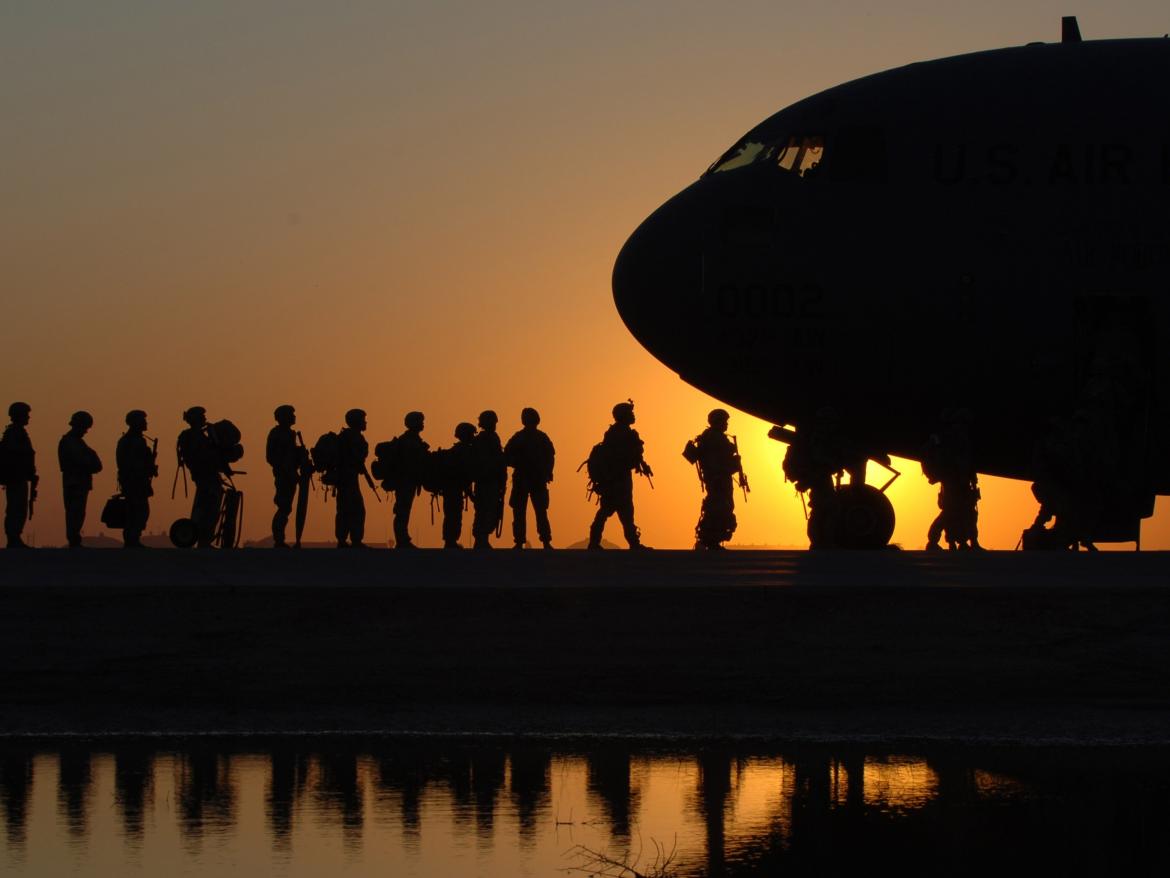To end endless war, we need to know where the United States is engaged militarily and who we are fighting. One of the ways we work for peace is by pushing for increased government transparency and accountability for U.S. wars.
In the last defense authorization bill (the FY2020 National Defense Authorization Act, or NDAA) FCNL advocates worked to secure the inclusion of two key reporting requirements on U.S. wars:
- The first report, due on March 1, 2020, requires President Trump to tell the American people who we are fighting and how broadly he believes he can stretch existing war authorizations—the 2001 Authorization for Use of Military Force (AUMF) and the 2002 Iraq AUMF—to cover new enemies and locations (section 1261).
- The second, due June 20, 2020, requires the administration to disclose all the countries U.S. troops are fighting in and to update Congress every six months on all actions taken under the 2001 AUMF (section 1285).
Here’s the bad news: President Trump has failed to submit these reports.
The good news is that advocates are working toward accountability. Earlier this month a lawsuit was filed to compel him to release the first report.
We know that “[d]emocracy does not work properly if the public does not know what its government is doing.” Without these reports, the American people cannot meaningfully engage in the debates over ending current wars and when the president can start new wars.
Democracy does not work properly if the public does not know what its government is doing.
This latest refusal by the Trump administration is part of a larger, worrying trend. The last few years have seen a decline in how much information on U.S. wars the executive branch provides to the public. The Obama administration voluntarily released 60 pages of information in 2016. But when Congress required the Trump administration to do the same, it only made 9 pages public, with the rest relegated to a classified annex.
It is important that the Trump administration be transparent with the American people and release both of these war reports. We shouldn’t have to wait for a court to force them to.


